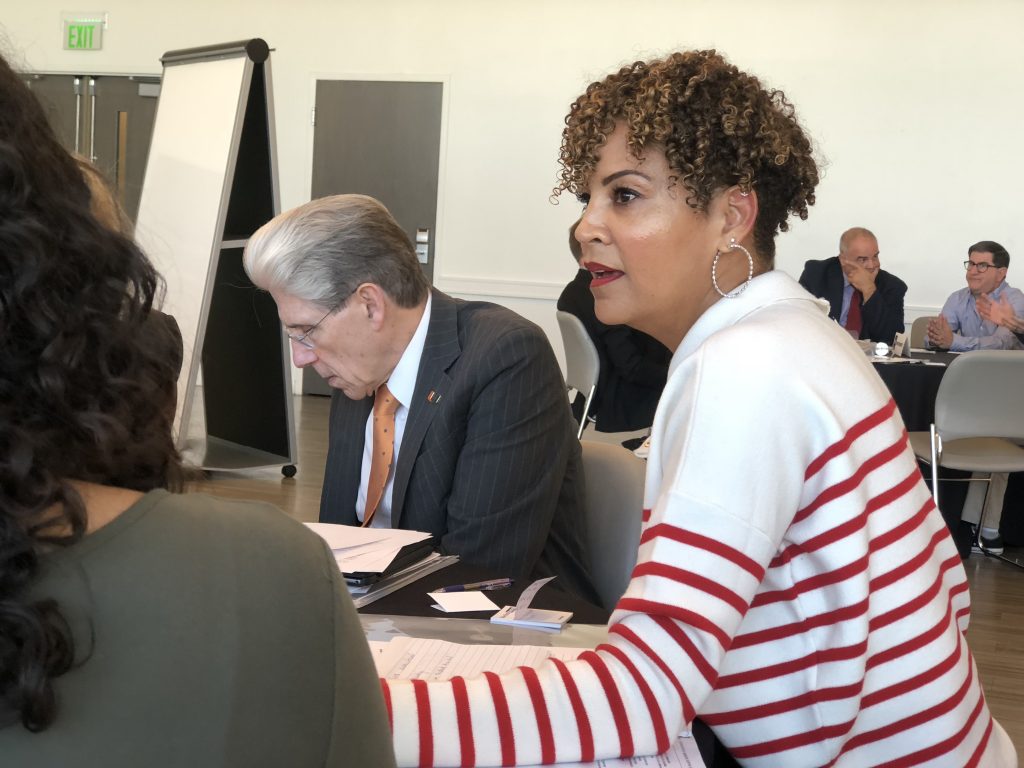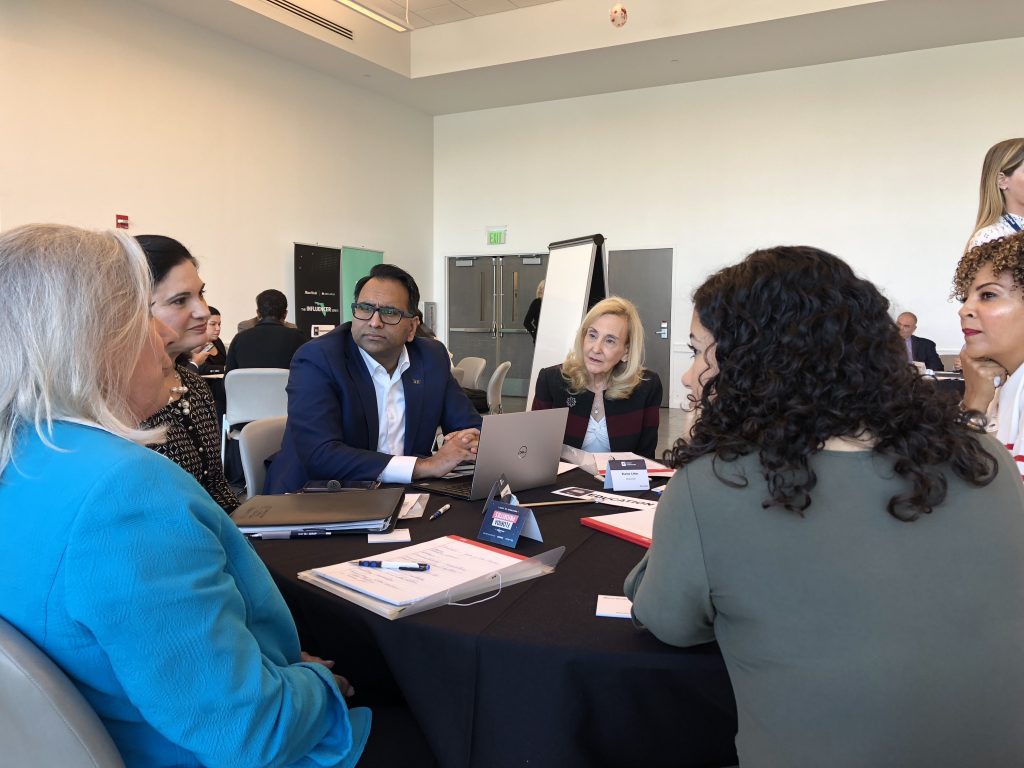
By Valentina Palm
PantherNOW / Florida International University
Tracy Wilson Mourning says her family left South Florida when she was 6 because of lack of access to good schools. Twenty years later, she returned to raise her daughter with former Miami Heat player Alonzo Mourning — and advocate for education in underprivileged communities.
This week, Wilson Mourning participated in the Miami Herald’s Florida Priorities Summit, held Nov. 18 and 19 at University of Miami to improve the state’s education system.
“Since I was a little girl, my mother would tell me ‘If they can keep you uneducated, they can control you’ and that is what I want to teach our kids,” Wilson Mourning said at the summit.
Wilson Mourning founded the nonprofit Honey Shine Inc. in 2002 to give kids professional opportunities she never had access to as a child.
She was one of the 50 influential Floridians at the summit working to identify problems and solutions to the state’s most pressing issues on housing, education, transportation, environment and healthcare.
Wilson Mourning worked in the group addressing access to education, affordability and how to ensure it is relevant for the technology-driven 21st century. Group members wrote a solutions and proposals report for the state legislature.
University of Miami President Julio Frenk, another summit participant, said he believes Florida’s biggest challenge is also a national issue: education accessibility. He cited a study done by the Aspen Institute College Excellence Program that found 50,000 community-college students nationwide who qualified for four-year college programs didn’t enroll.
“Students are not enrolling because they feel they are not going to be admitted or not able to afford it,” Frenk said. “That is terrible because those are students that could succeed. They have the grades.”
Frenk believes strengthening academic and financial advising networks for community college students is necessary to ensure they continue their educations.
“Not everyone needs to go to a four-year college but those students who can, should go,” he said.
In terms of affordability, Frenk believes “free college for all” and expunging student debt are regressive proposals, and that need-based scholarships and an earning-based debt repayment method are viable solutions.
Frenk says “free college for all” would disproportionately benefit people who can afford to pay and that they are the ones who sustain educational institutions.
“Lack of money should never be the reason someone doesn’t go to school,” Frenk said. “We should meet students financial needs in the gap that is the amount remaining between the cost of education and how much the student can afford so they don’t carry debt until they die.”
An earnings-based repayment debt method would allow payments to increase at the same rate as an alumni’s salary. It also establishes a maximum interest percentage so the remainder is absorbed by the state, according to Frenk.
“That way we encourage students to pay a sustainable debt repair that does not interfere with other life goals like buying a house or starting a family,” he said.

Wilson Mourning believes Florida universities need to create a college culture in underprivileged communities that provides students with academic advisement and bridges the divide among children of families from different social groups.
She said partnerships between colleges and universities with community organizations, such as her nonprofit, would give students more access to information and opportunities.
“Getting information out to them is necessary because some students have no idea [about college] and they don’t want to go because they think they don’t belong,” Wilson Mourning said.
She also believes diversifying the teaching workforce is necessary for the ever-growing diverse communities in Florida.
“Students need to see themselves in their teachers,” she said. “For my kids, throughout their academic career the only people that looked like them were conserjería (janitors) and people working in the cafeteria. Nobody looked like their mom or dad.”
Elaine Liftin, president of the Council for Educational Change, believes education advocates and teachers must work with businesses in the public and private sector to prepare students for careers relevant throughout the 21st century.
“Educators need the business community so they know what is out there for students and how they can get there,” Liftin said. “Corporations can hire a group of students and help pay for their education, that is a good start for leaders in business to invest in education and grow their enterprises.”
Businesses should receive public and private incentives to offer students paid internships, which would ensure the enter the workforce before graduation, said Saif Y. Ishoof, Florida International University’s engagement vice president.
“That way there is no lack of dignity by working in what you don’t want and you can afford to do an internship,” Ishoof said.
Liftin believes the issue with college enrollment starts in K-12 education, where school advisors don’t provide options or plans for students to continue into higher education after high school graduation.
“Teachers are not aware of the skills students need to get to college,” she said.
For Wilson Mourning , the future of Florida’s education system depends on teaching children the value and power of going to school, and making sure the state provides education funding.
“I would like every kid to have the opportunity to develop a love for learning about their interests, who they are and where they came from,” said Wilson Mourning.
